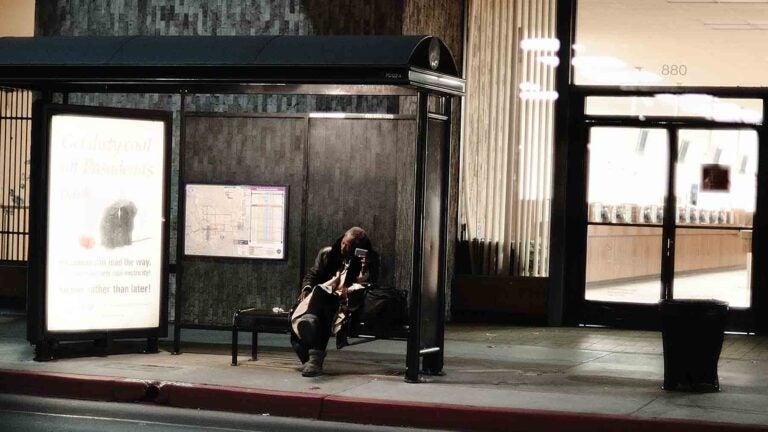
A new report provides insight into the lives of women who have lived on L.A.’s Skid Row. (Photo/Jorge Gonzalez)
New data reveal crisis of women living on L.A.’s Skid Row
Surveys by the USC Suzanne Dworak-Peck School of Social Work find nearly half of the women on Skid Row have been physically or sexually attacked in the last year
Los Angeles’ homelessness problem is worsening — but it’s particularly bleak for the homeless women of Skid Row, a new report finds.
The 2016 Downtown Women’s Needs Assessment reports that 90 percent of women living on the streets of downtown L.A. have experienced physical or sexual violence in their lifetime, and nearly half have been attacked in the last year. They also tend to be older, in poorer health and disproportionately African-American, compared to past years.
Study results illustrate the impact of housing on a woman’s overall health and well-being, underscoring the need for more permanent supportive housing and dedicated services for women.
The study was led by the Downtown Women’s Action Coalition, a consortium of service providers and advocates, and based on surveys with 371 homeless or formerly homeless women aged 20-85 conducted by the USC Suzanne Dworak-Peck School of Social Work. The surveys are done every three years to better identify what services are needed and how to deliver them.
55 percent increase
This year’s study comes on the heels of a count by the Los Angeles Homeless Services Authority that reported a 55 percent increase in the number of homeless women in Los Angeles County since 2013. That’s a total of more than 14,000 women living on the streets.
More than ever before, we need large-scale investment in permanent solutions.
Anne Miskey
“Women experiencing homelessness have always faced unique challenges in our community. However, the alarming increase in the number of women impacted points to a far greater problem that calls for broader, systematic change,” said Anne Miskey, chief executive officer of Downtown Women’s Center, whose staff coordinated and wrote the coalition report. “More than ever before, we need large-scale investment in permanent solutions.”
Fastest-growing group
She said women represent the fastest-growing group experiencing homelessness. The report cites a lack of affordable, accessible housing as one of the major causes of women experiencing homelessness – a problem exacerbated by lost jobs, rising rents and simply growing older. In situations of domestic violence, many choose the streets over staying with their abuser.
“This report serves to emphasize what many providers of services to homeless women already know to be true, and is a strong argument for focused attention from policymakers. It is to no one’s benefit to allow homeless women to languish,” said USC Professor Suzanne Wenzel, lead investigator.
The full report can be accessed online.
